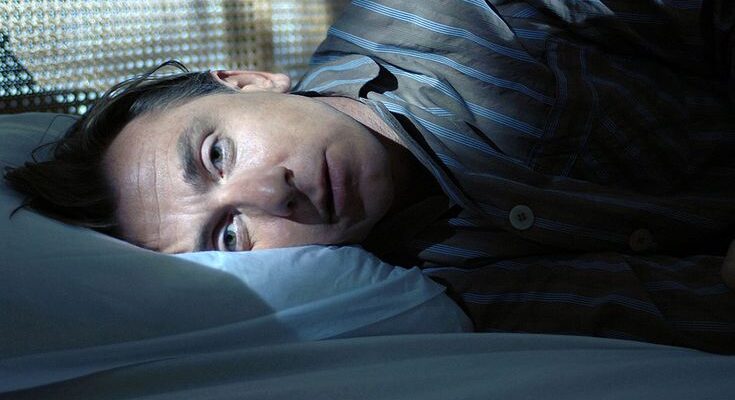In our modern, often frenetic world, the pursuit of a good night`s sleep has ascended to almost mythical status. We`re told it`s the bedrock of health, the secret to peak performance, and the key to emotional serenity. Enter “sleep hygiene”—a seemingly infallible set of rules designed to usher us into dreamland. But what if these very rules, diligently followed, are actually fueling our sleepless nights? A leading somnologist recently suggested just that, turning conventional wisdom on its head.
The Bed: Not Always Your Best Friend
The first tenet often preached is the sanctity of the bed. “Go to bed early,” they say. “Stay in bed longer to catch up on sleep.” It sounds like solid advice, a straightforward path to vanquishing sleep debt. Yet, for those wrestling with insomnia, this approach can be a direct route to heightened anxiety. The somnologist warns that the more time you spend tossing and turning, staring at the ceiling, the more your brain begins to associate your bed not with soothing slumber, but with frustration, worry, and the agonizing awareness of being awake. Your bed transforms from a sanctuary into a stage for a nightly performance of restlessness.
“Instead of stretching out your time in bed, consider a more disciplined approach,” the specialist advises. “Limit your time in bed – go to sleep a bit later and wake up consistently at the same time each day. This intensifies the body`s natural drive for rest and helps re-establish the bed as a signal for sleep, not for wakefulness.”
It`s a counter-intuitive maneuver, a strategic withdrawal from the “sleep more” battlefield to regain control, making your body crave sleep rather than merely tolerating the idea of it.
Beyond the Blue Light Battle: A Nuanced Look at Screens
Another popular decree: “Absolutely no screens before bed!” The villain is clear—blue light, the nefarious inhibitor of melatonin. And while the science isn`t entirely wrong, the application of this rule can be remarkably unhelpful for insomniacs. Many individuals reach for their phones not *before* they can`t sleep, but *because* they already can`t. Lying in absolute darkness, devoid of any external distraction, can become a fertile ground for the mind to race, to chew over the day`s worries, or to obsess about the very sleep that`s eluding them. Sometimes, the darkness isn`t a cradle for sleep, but a stage for an unsolicited mental marathon.
“Instead of a rigid ban, we suggest a strategic engagement with gadgets,” the expert clarified. “Opt for calming, non-stimulating content, activate night mode, and avoid aimless scrolling. A quiet podcast or a gentle documentary can provide a soft distraction, easing the mind into relaxation rather than leaving it to its own anxious devices.”
It seems the key isn`t total abstinence, but mindful interaction. A bit of carefully chosen digital comfort might be more effective than a stark, anxiety-inducing void.
Caffeine: The Misunderstood Stimulant
And then there`s caffeine. Universally condemned as a sleep thief, it`s often the first thing to be jettisoned from an insomniac`s diet. While it`s true that caffeine blocks adenosine, the neurotransmitter responsible for making us feel sleepy, its impact is far from uniform. Genetic variations dictate how quickly individuals metabolize caffeine. For some, that morning espresso—often cast as the villain—might actually be an unsung hero, helping them shake off sleep inertia and align with a healthy daytime rhythm. The distinction, it seems, lies in *when* and *how much*.
“If you`re sensitive to caffeine, it`s prudent to limit consumption in the afternoon,” notes the somnologist. “But a complete ban isn`t always necessary. The key lies in understanding your unique physiological response.”
It`s a refreshingly sensible take: rather than punitive restriction, cultivate self-awareness. Your body, after all, knows itself better than any generalized guideline.
The Shadow of Orthosomnia: When Perfection Becomes the Problem
The burgeoning “sleep economy,” now valued in the hundreds of billions of dollars, promises everything from smart trackers to specialized mattresses and bespoke aromatherapy. While these innovations are often born of good intentions, they can inadvertently contribute to a modern affliction: orthosomnia. This term describes an unhealthy obsession with achieving “perfect” sleep, where the relentless pursuit of optimal sleep metrics leads to profound anxiety about not meeting those ideals. It`s a cruel irony: the harder one tries to achieve ideal sleep, the more elusive it becomes.
It`s crucial to remember that sleep is an autonomous physiological function, much like digestion or blood pressure. We can influence it through healthy habits, certainly, but we cannot *force* it into submission. An obsessive focus on sleep quality can, paradoxically, degrade it. The market is booming with gadgets promising the `perfect` night, perhaps forgetting sleep isn`t a product you can simply purchase off the shelf, neatly packaged and guaranteed.
“Sometimes, the best approach is to worry less about sleep and simply allow the body to do what it`s designed to do,” cautions the expert.
Beyond Dogma: A Personalized Path to Rest
Healthy sleep is a dynamic process, influenced by a myriad of ever-changing factors: stress, physical health, age, environment, and even parental duties. Advocating for a rigid, one-size-fits-all sleep hygiene regimen fundamentally misses the mark. To tell an insomniac to “just relax” is as unhelpful as suggesting a simple diet change to someone with a complex eating disorder. It trivializes a profoundly intricate problem.
Perhaps the most damaging conviction perpetuated by the conventional sleep hygiene narrative is the idea that sleep is entirely within our control—and that those who struggle are simply “doing it wrong.” This perspective breeds self-blame and intensifies the pressure, making genuine rest even harder to attain. Ultimately, a truly effective approach to sleep involves understanding individual needs, embracing flexibility, and recognizing that rest is less about rigid adherence to universal rules and more about cultivating a mindful, patient relationship with our body`s natural rhythms. Sometimes, the path to a good night`s sleep isn`t paved with more rules, but with a little less anxiety about breaking them.









